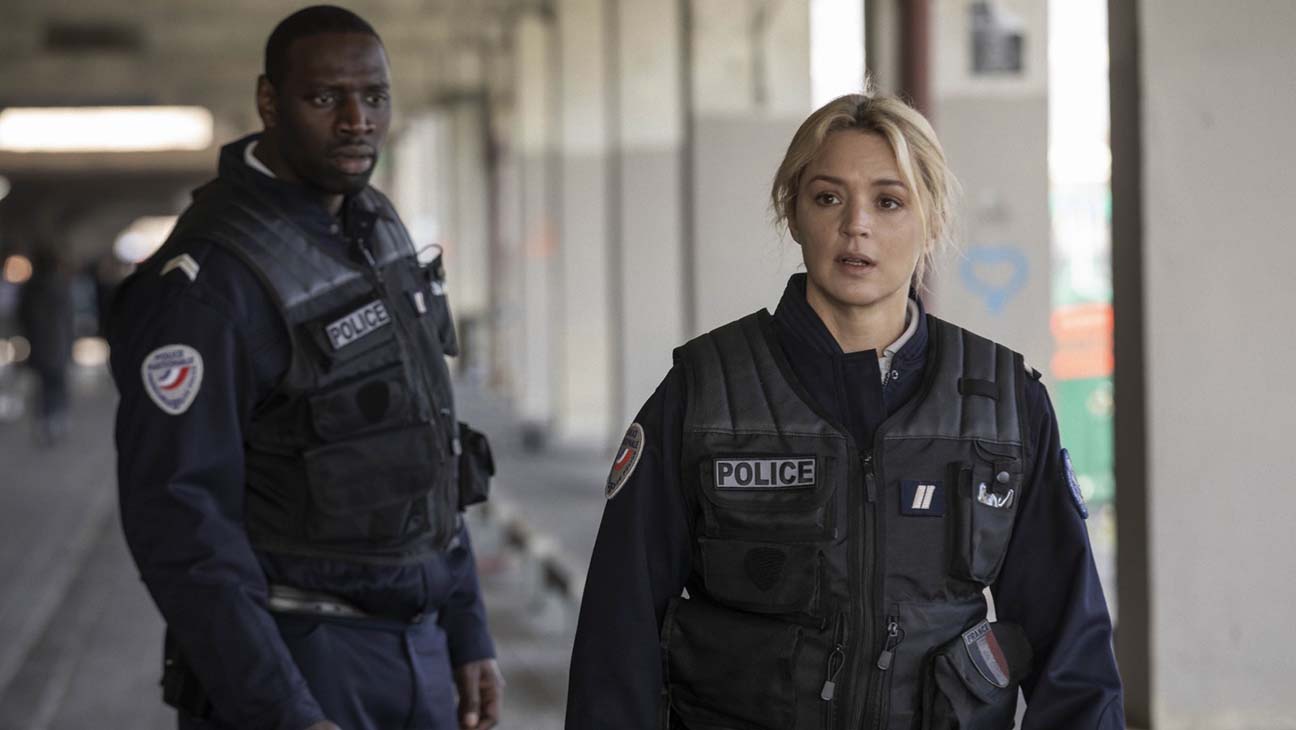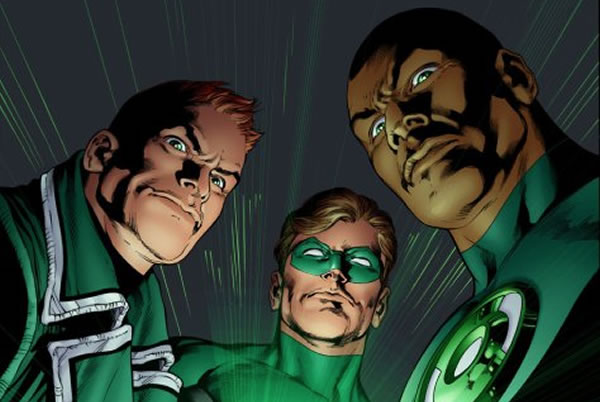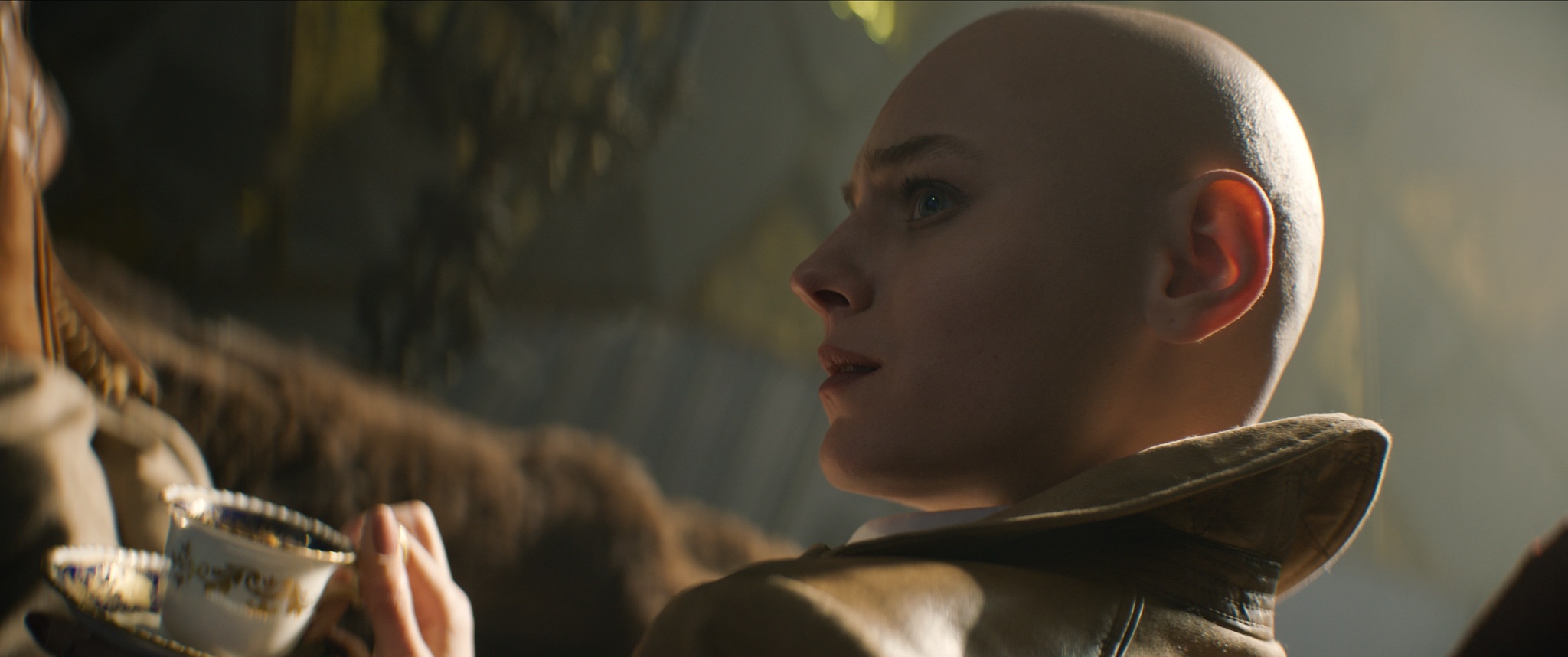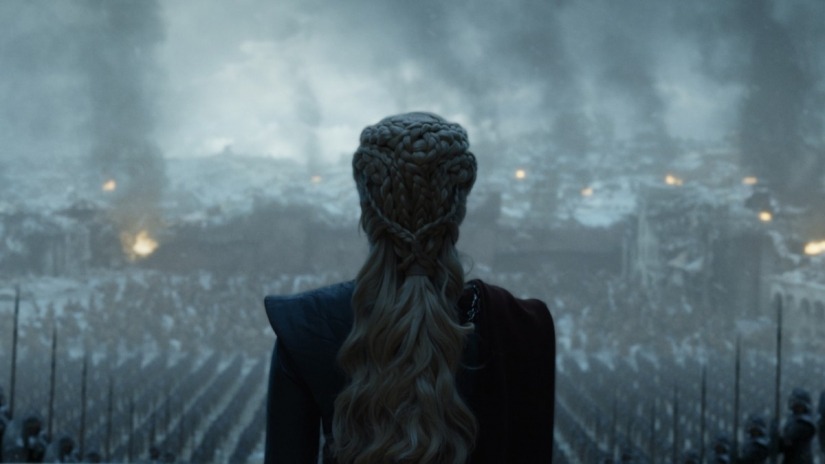Three French police officer’s personal and professional lives collide in Night Shift (Police), as they are placed on duty to escort an illegal immigrant to Charles De Gaulle airport. Each one grapples with their own life dilemmas and reflects on the events and days leading up to this very night. However, they become unmistakably aware and develop a conscience, as they realize that this innocent man, played by Payman Maadi, will be shipped back to meet his death in his homeland, Tajikistan. Starring a multi-talented cast, Omar Sy, Virginie Efira and Gregory Gadebois, the film is brilliantly directed by Anne Fontaine, who poignantly captures the intense, apprehensive and contemplative moments of their night transfer to the airport.
Night Shift made its world debut at the Berlin film festival recently and a few of us lucky reporters had the pleasure of meeting some of the cast and director. LRM sat down with the lovely Virginie Efira, also known for her roles in Elle, In Bed with Victoria, and Sibyl, to talk about playing a police officer, women in the film industry, and being directed by Anne Fontaine. See below what she had to say.
LRM: There are many police films, but not many made by women. How do you think that Ann’s point of view and your point of view changed the genre?
Virginie Efira: My impression is that Anne [Fontaine] wanted from the beginning to leave this job to a naturalistic film and to do so she uses aesthetic terms, such as light and the play with light and setting. Again, to come back to the genre question, when you think about a film with cops, it has to be an action film. But here again, it happens more in the head than in action. That’s what makes this film different.
LRM: Your character is very brave in the movie in the face of injustice. How do you think you’d react to this situation if faced with it for real?
Virginie Efira: Bravery is the first quality that you require to make a courageous decision, but it only is determined in the instant where it happens. It cannot be preempted by, or photoed.
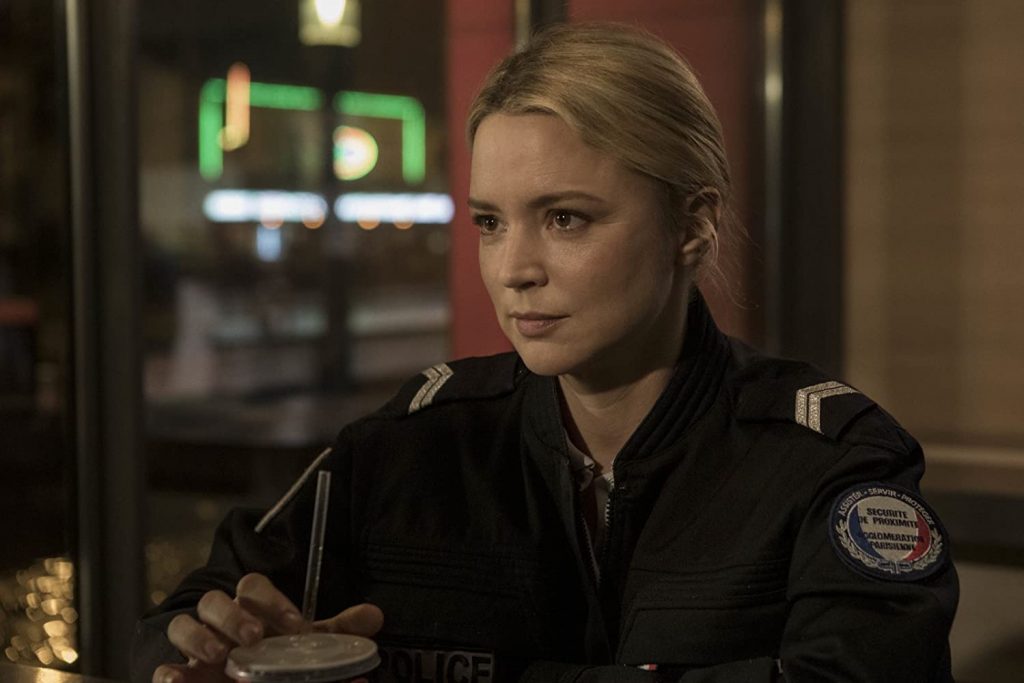
LRM: How did you prepare for the film? Did you speak with many police women?
Virginie Efira: Yes, of course I talked with a lot of police women, but for me the most important thing was the physical things of course, because I never put handcuffs on someone and say, “Don’t move, okay?” in my life. When you meet these people, they often speak about their own lives, experiences and that’s very interesting. But what’s most interesting for me in my own life and my work is to listen to their story. I never had a chance to actually meet and talk to cops.
All cops are different because there is some individuality, but the only thing is, what it means to have a uniform. For me, when I put on the uniform, I feel so vulnerable. I was thinking that I would be feeling strong, I know what the law is. But, I had a feeling of wanting to hide.
Behind the scenes, when we had some breaks and were walking along the street, I felt a little bit strange. People are looking at you because in our country they regard the police as suspicious.
LRM: In the film, there are some sexist jokes about the woman, who is also a police officer. Does that still exist?
Virginie Efira: Of course, I’m not saying that we are now beyond sexism in this kind of a profession, but it’s not the subject of this film. What I really liked in his film is that she is actually working with two colleagues, who are the epitome of manhood. They are strong men, but in the end it’s she that influences them.
LRM: Was the recent Cesars award for best director an example of sexism in the profession?
Virginie Efira: To answer your questions, Roman Polanski of course has become symbolic of something, and whether it is right or wrong, this prize given to him represents the continuation of a fight against abuse and misuse of power in the movie world. However, I would not say that the Césars Awards are sexist per say. Because what are the Caesars? They are of course awards that go to French cinema, and French cinema is absolutely not about sexist treatment of stories. There are no stereotypes. It doesn’t reproduce stereotypes in such a way that you would say, French cinema is sexist.
On a personal level, I certainly will continue to watch films and read books written or made by people who might or might have not committed crimes. Having a political consciousness for me is not that I should check whether this person has not committed this or that abuse. This doesn’t need to be a paragon of virtue for me to read or see their works. That’s distinct from politics. This is not in contradiction with my strong belief that we must continue this fight in order to put an end to such abuses and also to the fact that awards are given to celebrities who have committed such abuse repeatedly.
Related: Getaway Interview: Jaclyn Betham On Crafting A Good Twist In A Horror Movie
LRM: How do you feel about gender equality in films?
Virginie Efira: We have to continue also in French cinema to work at gender equality parity, so 50/50 and diversity as well. Not only with those who make the films do we have to continue this work, but also what is shown on screen in the films. For example, I made this film with Omar Sy and there are not a lot of black acto
rs in France…I would say that we must stop to seek justice in places where there is no reason to have justice. Like award ceremonies, it’s not about justice.
I’m 42 years of age and for the past four, five years I’ve been offered really interesting parts, very diverse, all sorts of things being asked of me. And I think in the US it might be different. I would not be offered such parts.
LRM: Having been directed by women and men, do you feel there are any differences for you?
Virginie Efira: There’s no difference, because there’s no specific look. There’s no female look. There’s no film de femme, because there’s a lot of femme and we don’t all have the same point of view.
Sometimes I receive a script written by the woman and it’s so misogynistic.
With Anne, the difference is not that she’s a woman, because she’s very strong and everything. I have known her for a long time. It’s better to love the director with whom you work, because when you’re playing you don’t play for someone, but a little bit. A little bit for the director, because you want to know what is in her brain. And sometimes, we don’t agree, if she doesn’t want me to make too much movement and be more strict with thinking and looking out the window. But when I saw the movie I said, “That’s great because we have the time to go in her head and all that.” I admire Anne, I know her, and therefore it’s easier for me to just abandon myself and act as she wants me to.
Have you checked out LRM Online’s official podcast feed yet The LRM Online Podcast Network? This includes our flagship podcast Los Fanboys, our premiere podcast Breaking Geek Radio: The Podcast, GeekScholars Movie News, and our morning show LRMornings. Check it out by listening below. It’s also available on all your favorite podcast apps!
Subscribe on: Apple Podcasts | Spotify | SoundCloud | Stitcher | Google Play
SOURCE:

 FOR FANBOYS, BY FANBOYS
Have you checked out LRM Online’s official podcasts and videos on The Genreverse Podcast Network? Available on YouTube and all your favorite podcast apps, This multimedia empire includes The Daily CoG, Breaking Geek Radio: The Podcast, GeekScholars Movie News, Anime-Versal Review Podcast, and our Star Wars dedicated podcast The Cantina. Check it out by listening on all your favorite podcast apps, or watching on YouTube!
Subscribe on: Apple Podcasts | Spotify | SoundCloud | Stitcher | Google Play
FOR FANBOYS, BY FANBOYS
Have you checked out LRM Online’s official podcasts and videos on The Genreverse Podcast Network? Available on YouTube and all your favorite podcast apps, This multimedia empire includes The Daily CoG, Breaking Geek Radio: The Podcast, GeekScholars Movie News, Anime-Versal Review Podcast, and our Star Wars dedicated podcast The Cantina. Check it out by listening on all your favorite podcast apps, or watching on YouTube!
Subscribe on: Apple Podcasts | Spotify | SoundCloud | Stitcher | Google Play

